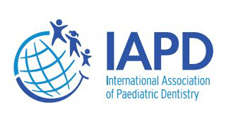Looking Out for Your Furry Friend
February 5th, 2025

The grownups in your life help you with your dental care. After all, good dental health makes your life happier. Your teeth and gums feel great. You can eat crunchy foods. Your checkups and cleanings keep your smile healthy and bright.
And you want the same happy life for one of your best friends—your pet! Because February is Pet Dental Health Month, let’s talk about some ways you and your family can keep your dogs and cats healthy and happy, too.
- Feed Your Pet Healthy Food
The adults in your life make sure you eat a healthy diet. This includes serving foods filled with vitamins and minerals which are good for your teeth and gums. Pets also need to eat healthy meals, and there are special foods and treats made for their dental health. Some foods help keep teeth strong, and some tasty treats help clean the teeth.
Your veterinarian can help you find out the healthiest meals and treats for your dog or cat—and tell you which foods aren’t good for them!
- “Chews” the Right Toys
Dogs—and some cats—love chew toys, so we need to make sure those toys are safe for them and for their teeth.
Chewing on bones, sticks, and hard plastic toys can break even the biggest and strongest dog’s tooth. If a toy is harder than your pet’s tooth, it can damage your pet’s tooth. Toys should be tough enough not to break into little pieces when they’re chewed, and big enough not to be swallowed. Your vet is a good person to ask about the best and safest toys for your furry friend. And speaking of your vet . . .
- Take Your Pet to the Vet for the Best Dental Care
We talk about your pet’s veterinarian a lot, because veterinarians are both dentists and doctors for our four-legged friends. And just like you visit your dentist and doctor regularly to make sure you stay healthy, your pet sees the veterinarian for checkups, vaccinations, and dental exams.
Checking your pet’s teeth regularly is important because, while dogs and cats don’t get cavities the same way we do, they often suffer from gum disease caused by built-up plaque—the same kind of plaque which causes cavities and gum disease in people.
If your pet is showing any of signs of a dental problem—a broken tooth, really bad breath, brown or yellow stains on the teeth, not wanting to eat, pawing at the mouth, or lots of new drooling—it might be time to visit the vet for a dental checkup.
February is Pet Dental Health Month, but your dog or cat is your friend all year long. You and your family can help your pets to have healthier teeth and gums by feeding them the right foods, seeing they have safe toys, and visiting the vet regularly. Your love and care will help your furry friend live a longer, healthier life. That’s happy news for both of you!








